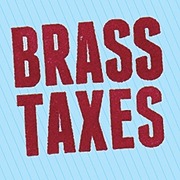You and Your Business
Am I self-employed?
If you have lots of jobs and sources of income, it can be hard to figure out what counts as freelance. We’re here to help!
Updated 2 weeks ago

When it comes to the question of self-employment, the government cares less about what you did, and more about how you got paid.
It’s All About the Paperwork
If you get a W-2 from a company or person that you work for, then you’re considered their employee — simple as that. But if you receive a 1099, or if you were paid cash, through a payment app, or with a check, then you’re self-employed… and that means you’re responsible for paying taxes on that income yourself.
They Call Me Freelance...
People use this word a lot these days, even if they don’t all mean the same thing. Freelance, permalance, independent contractor, sole proprietor—they’re variations on the same theme. For tax purposes, it really only matters if your client or employer sends you a W-2 or not.
The silver lining is that when you’re self-employed you can deduct your expenses, which ultimately benefits your bottom line. (Peep our expense trackers here.) W-2 employees can rarely deduct expenses from their income.
To make sure you’ve got it right, reach out and we’ll help you sort through the details: info@brasstaxes.com.

